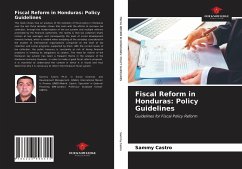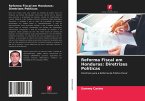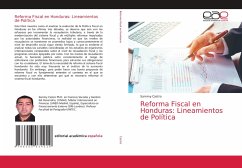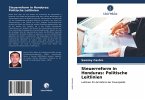This book shows how an analysis of the evolution of fiscal policy in Honduras over the last three decades shows that even with the efforts to increase tax collection, through the modernization of the tax system and multiple reforms promoted by the financial authorities, the reality is that tax collection levels remain at low averages and consequently the level of social development remains limited, which is evident when analyzing all the variables considered in the studies of international organizations compared on the level of tax collection and social programs supported by them. With the current levels of tax collection, the public treasury is constantly at risk of facing financial problems in meeting its obligations to citizens. The need for reform of the Honduran tax system has been a frequent theme in the analysis of the Honduran economy. However, in order to make a good fiscal reform proposal, it is essential to understand the context in which it is found and thus determinewhy it is necessary to reform the Honduran fiscal system.
Bitte wählen Sie Ihr Anliegen aus.
Rechnungen
Retourenschein anfordern
Bestellstatus
Storno








